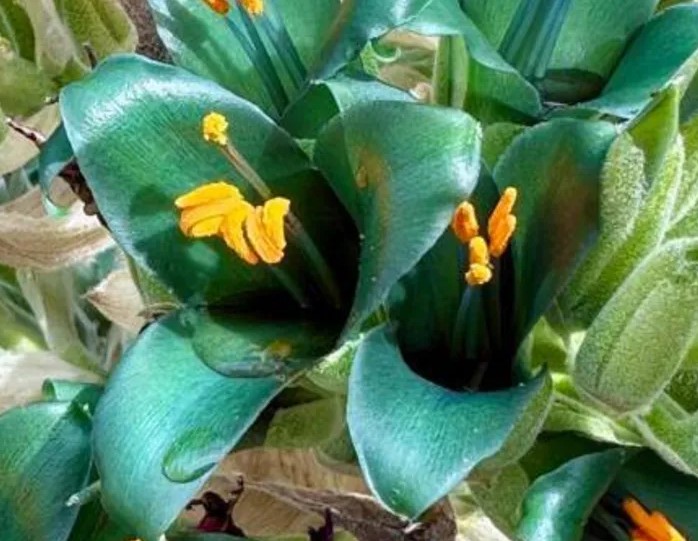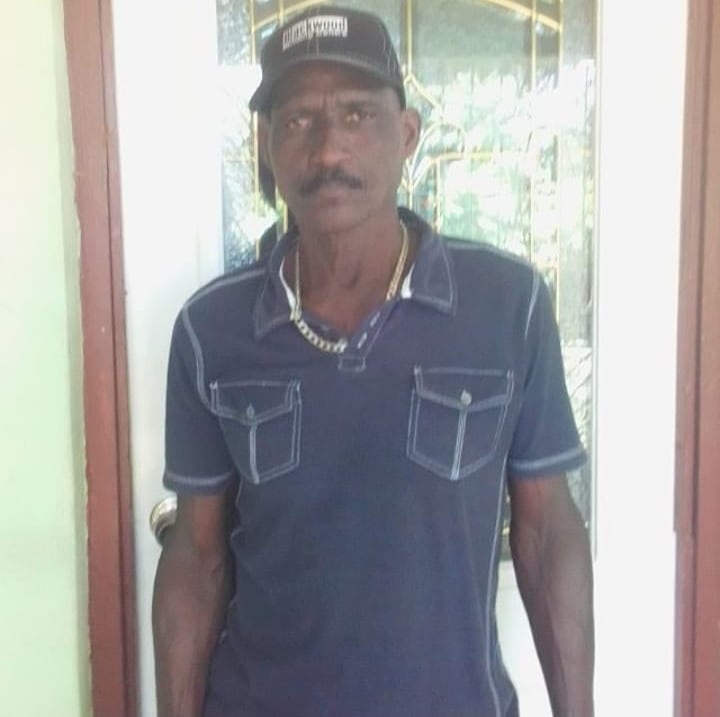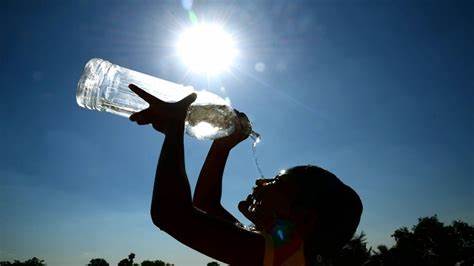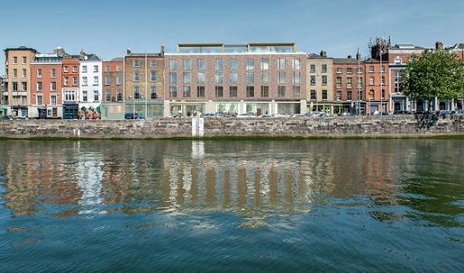At the Kingston Public Hospital, Rupert Dixon appeared to be on the mend. He was recovering from two hospitalizations and a surgery after taking the AstraZeneca Covid-19 vaccine. But things took a turn for the worse in the days after - when Mr. Dixon died of a stroke.
His death certificate stated that thrombosis, after taking the Covid-19 vaccine, contributed to his death. Before the vaccine, 68-year-old Rupert Dixon said he’d never been ill.
His wife, Vivienne, relayed that in the six years they were married, even though he had high blood pressure, she’d never seen him suffer from even the common flu. But things changed three days after Mr. Dixon took the AstraZeneca vaccine.
Even though Jamaica has a tropical climate, he said he broke out into goose bumps from feeling freezing cold. One week after the vaccine, he fainted, Mrs. Dixon said.
Around mid-May, a bump appeared on his forearm, and it grew. It eventually moved under his arm. An ultrasound showed he had developed thrombosis - the formation of a blood clot, which, if left unchecked, can move to the brain, the heart or the lungs and prove fatal.
According to Mrs. Dixon, it took three months for the bump to go away and, during that time, another problem developed - this time in his leg. Mr. Dixon developed a pseudoaneurysm in his leg, which is when the wall of a blood vessel is injured and the leaking blood collects in the surrounding tissue. He required surgery.
He was admitted to the Kingston Public Hospital (KPH) on August 9, Mrs. Dixon said, where he spent just over a week. Lead surgeon at KPH, Dr Lindberg Simpson, said he’s not sure why Mr. Dixon's pseudoaneurysm occurred and he can’t say whether it was caused by the vaccine.
However, he explained two risk factors are hypertension - which Mr. Dixon had; and smoking, which Mr. Dixon did heavily many years before, though he had stopped.
Dr Simpson said both risk factors can cause arteries to harden, and Mr. Dixon did have a mild case of this condition called atherosclerosis. He said since Mr. Dixon was on blood thinners to treat the clot as well, that could also have made things worse as thinners cause a person to bleed more.
Mr Dixon said at no point did any of the doctors acknowledge to him that his experience could be linked to the vaccine. However, he believed it was the trigger.
Dr Simpson, who removed the stitches from his leg that day and gave him a prescription to fill, said: “I expect him to [make a good recovery.” But during our interview, Mr Dixon revealed he was dealing with another lingering issue - erectile dysfunction. In the presence of KPH Senior Medical Officer Dr Natalie Whylie, he said it’s a condition he’d never had even though he was 68.
When told about Mr. Dixon's case, Associate Professor of Urology at the University of Miami, Dr Ranjith Ramasamy, who has studied the effects of Covid-19 and Covid-19 vaccine on male reproduction and sexual health, says there is no evidence that erectile dysfunction is directly associated with the vaccine. In fact, though his sample sizes were small, his research has shown that it's the Covid virus, itself, that can affect male fertility and be a potential cause for erectile dysfunction. He acknowledges his research warrants further study.
However, he says in Mr. Dixon's case, thrombosis or blood clots can lead to blockage of blood to various organs of the body, including the penis, which is a very vascular organ in the body. Adequate blood flow is needed for an erection.
Consultant Urologist at the University of the West Indies in Jamaica, Dr William Aiken, adds that there is a psychological component as well, and generally, whenever someone is ill, sex is the last thing on that person's mind.
“Any acute illness that he had in and of itself could depress his testosterone level, activate the adrenaline and noradrenaline levels (flight or fight response), and the psychosocial stress of the illness can all be a significant contributing factor for erectile dysfunction in a patient,” Dr Aiken said. He adds that in cases like Mr. Dixon’s, the ability to have an erection can come back fully, although “it may take a while.”
Mrs. Dixon confirmed to 18º North that while her husband was very sexually active before the vaccine, after his illness, he just wasn't in the mood. She playfully relayed that while this was abnormal for him, she didn’t mind the break.
She recounted that he went home feeling more upbeat but still seemed worried about some things, including her wellbeing. By Saturday, a pharmacist mentioned a problem with filling the prescription that was dropped off on Thursday. By later that day, her husband was again not feeling okay.
Mr. Dixon went into a coma and died at the Linstead Public Hospital on October 4. His death certificate said he died of a “Left Middle Cerebral Territory Stroke” as a consequence of “Hypertension” and also as a consequence of “Left Arm thrombosis post Covid-19 vaccine on April 2021.”
It's not clear how this cause was determined since no CT scan was done, Mrs. Dixon said. Neither was an autopsy done because she didn’t want it. She was worried about how long government pathologists would take, which she feared may have significantly delayed funeral plans.
Experts say doctors can sometimes deduce cause of death based on clinical information. The Linstead Public Hospital, in Spanish Town, where Mr Dixon first went to get treated for his thrombosis wouldn’t speak about his case except to confirm that an ESAVI (Events Supposedly Attributed to Vaccination or Immunization) was filed in June, and an investigation was being carried out by the Ministry of Health. All causality investigations are supposed to be done at the central level.
Despite repeated requests to Dr Melody Ennis, who is overseeing the country's vaccination program, and an indication from her that she would update 18º North regarding the results of the investigation into Mr. Dixon's case, she did not respond to a final follow-up email sent on Nov. 15.
Since the administration of the Covid-19 vaccine began in Jamaica on March 10, 2021 there have been nine reports of thrombosis recorded locally, according to an October 12 ESAVI report from the health ministry that was obtained under the Access to Information Act (ATI Act). According to the ministry’s internal dashboard, there were roughly 852,000 doses of vaccine administered as of that date, an incidence rate of 0.0011% or one in every 95 thousand doses roughly of vaccines administered. (It’s not known if causation has been established.)
An excerpt from the ESAVI report from the Ministry of Health & Wellness showing nine reports of thrombosis since the rollout of the vaccination. There have been 23 deaths recorded, for which causality investigations are underway.
The report stated that after reviewing the cases of eleven persons who died, saying that the vaccine did not cause or in any way contribute to their death. Additionally, Dr Ennis had said previously that two deaths were deemed indeterminate temporal, meaning while they occurred after the persons were vaccinated, there is no established link to their vaccination.
According to Dr Ennis, a committee determines causation, and causality is decided by first ruling out pre-existing conditions and the likelihood that they would have played a role in a death. If the death can’t be explained because of any possible link to those, then they start to investigate whether it was the vaccination. It’s not clear if autopsies were done in those cases.
In Jamaica, there have been almost 2,400 Covid-related deaths since the onset of the virus locally in March 2020. With less than a fifth of the population fully-vaccinated, the health ministry again urged Jamaicans to get vaccinated in order to protect themselves from severe illness, hospitalization and death. Also, the WHO declared a new coronavirus variant of concern called Omicron, and the country has since placed restrictions on travellers from eight African nations, including South Africa and Botswana.
This means that with immediate effect non-nationals who have visited these countries in the last 14 days will not be allowed into the island. Citizens and permanent residents will be permitted to enter but be subjected to a mandatory state-supervised quarantine for no less than 14 days.












